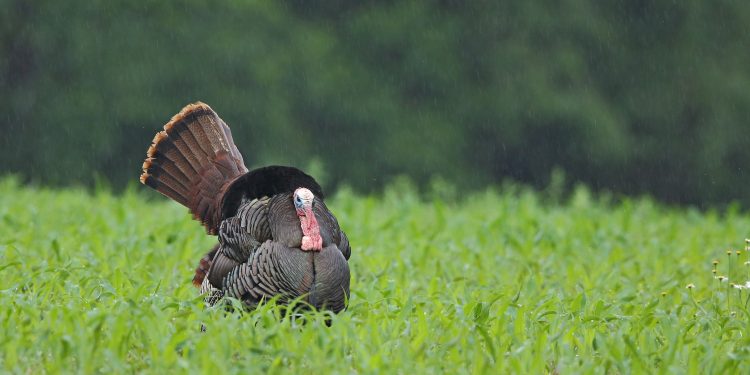HARRISBURG – The Pennsylvania Game Commission’s two-month survey on wild turkey sightings wraps up on Saturday, Aug. 31.
Participants are encouraged to report their sightings from July and August through Wednesday, Sept. 6. To contribute, visit pgcdatacollection.pa.gov/TurkeyBroodSurvey through the Game Commission’s Web site.
When reporting, include the number of wild turkeys seen, along with the location, date, and contact information in case agency biologists have follow-up questions.
Note that your specific location is kept confidential and is used only to determine the general area of each sighting.
Game Commission Turkey Biologist Mary Jo Casalena said these data help assess turkey productivity across Wildlife Management Units (WMUs) and contribute to long-term tracking of turkey reproductive success across the state, region and country.
Factors such as spring weather, habitat conditions, and predation affect turkey productivity.
The 2023 state-wide results showed a lower reproductive index for wild turkeys, 2.9 poults per hen, compared to 3.1 observed during the previous two years. Despite this drop, the 2023 index was consistent with the four-year average.
Notably, all WMUs except WMU 5D reported indices above the general threshold of 2 poults per hen, which is considered adequate for replacing adult mortality.
The index varied across units, from a low of 1.4 poults per hen in WMU 5D to a high of 4.5 in WMU 2E.
In neighboring states, the reproductive index averaged 2.5 poults per hen, with Virginia at the lower end with 1.9 and New York at the higher end with 3.3.
Pennsylvania’s survey includes input from both Game Commission personnel and the public. Since public participation began in 2016, the number of reported turkey sightings has doubled, enhancing the survey’s accuracy and coverage.
“Thanks to the large sample size from all corners of the Commonwealth, we have high confidence in the results,” Casalena emphasized.
“Remember, every summer turkey-sighting reported to the Game Commission helps to improve wild turkey conservation in the Keystone State. Public participation enhances our agency’s internal survey by increasing the sample size and providing broader coverage of turkey reproductive success across all WMUs.”



